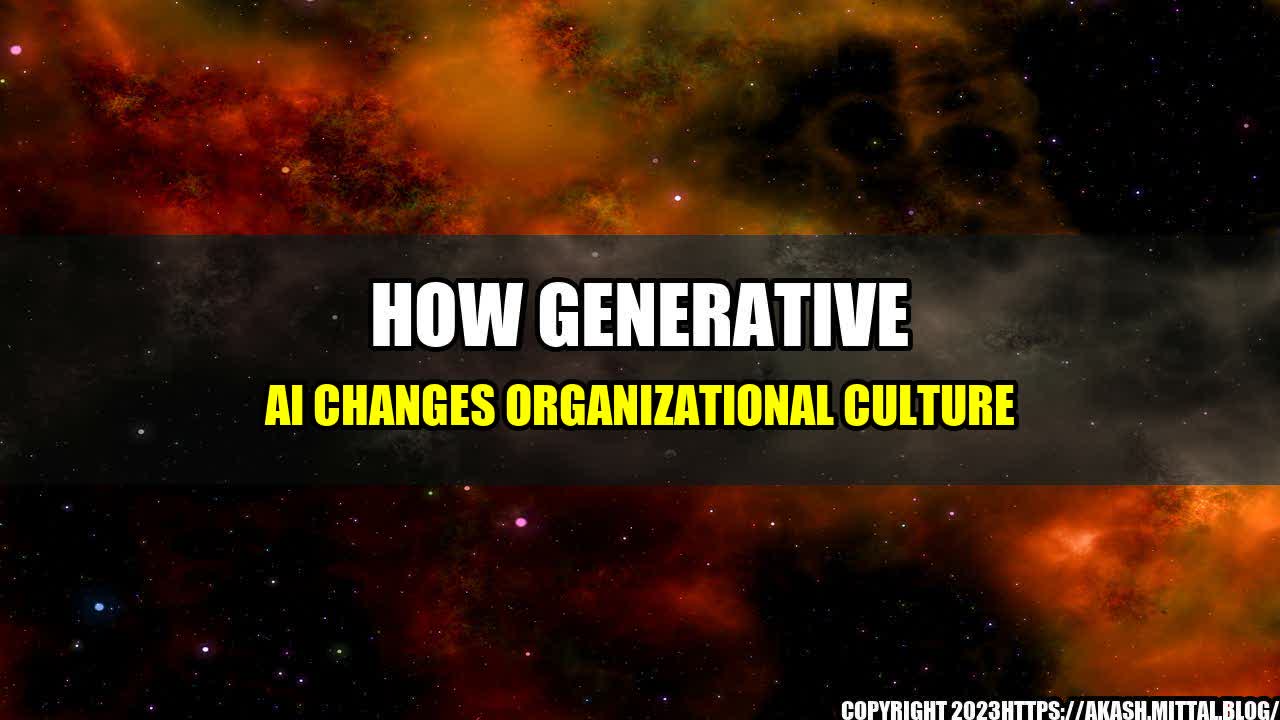
Meet Jane. Jane is a manager at Acme Inc., a global manufacturing company. Jane's been with the company for over a decade and has worked her way up the corporate ladder. Recently, Acme introduced generative AI into its processes, and Jane is having a hard time adjusting. She's used to making decisions based on her experience and intuition, but with AI, she feels like she's lost control.
Jane's story is not unique. As more companies adopt generative AI, employees are finding themselves in uncharted territory. But what exactly is generative AI, and how does it change organizational culture?
Generative AI is a type of artificial intelligence that can create something new from scratch, rather than simply following set guidelines. For example, generative AI can produce original artwork, music, or even written content. This technology has the potential to revolutionize industries such as design, entertainment, and advertising.
So how do companies use generative AI? One industry that's already seeing significant benefits is healthcare. Generative AI can be used to create personalized treatment plans for patients, based on their unique genetic makeup. This technology is also being used to identify new drugs and therapies that were previously impossible to discover using traditional methods.
Another industry that's benefiting from generative AI is logistics. Shipping and transportation companies can use this technology to optimize their routes and reduce their carbon footprint. By analyzing data such as traffic patterns, weather conditions, and fuel prices, generative AI can create more efficient delivery routes that save time, money, and resources.
While the benefits of generative AI are clear, the impact on organizational culture can be significant. When employees are used to making decisions based on their experience and intuition, introducing a new technology that makes decisions for them can be a shock. Here are three ways that generative AI is changing organizational culture:
While the impact of generative AI on organizational culture is still being studied, there are already some real-world examples of companies that have successfully integrated this technology into their processes. For example:
If your company is considering using generative AI, here are some practical tips to help manage the transition:
For more information on generative AI and its impact on organizational culture, check out these resources:
Hashtags: #GenerativeAI #OrganizationalCulture #AIintheWorkplace #DigitalTransformation #Innovation
Curated by Team Akash.Mittal.Blog
Share on Twitter Share on LinkedIn